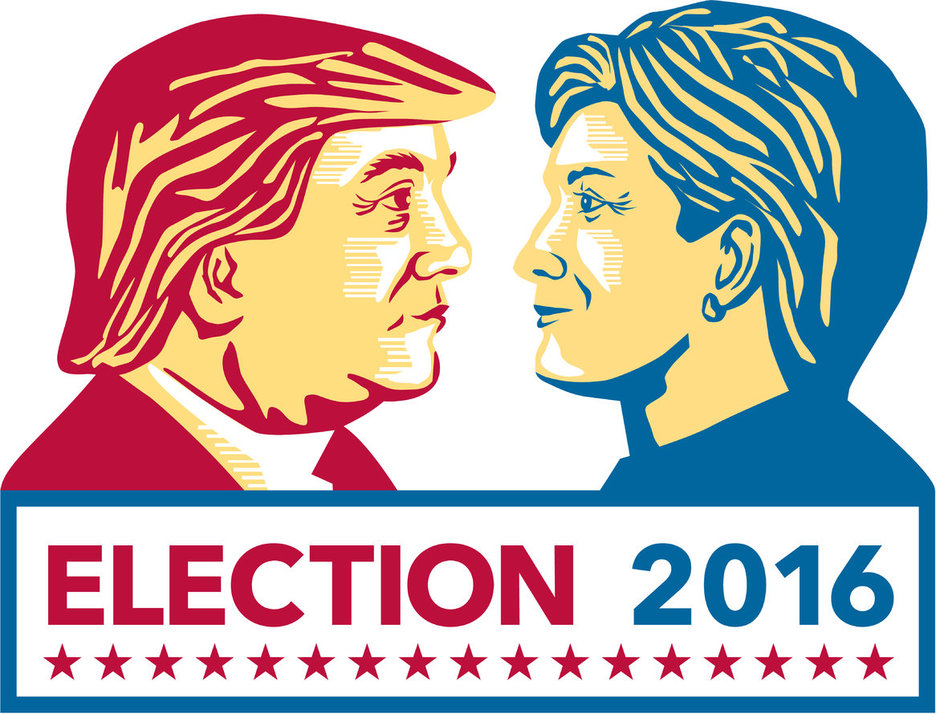By Connor Bloom ’19

Every four years Americans elect someone to the highest office in the land to lead the United States into the future. Over time, the set of skills and qualifications that a candidate must have to be considered a viable option for President have changed drastically. In electing a President, voters have a big responsibility. Besides assessing whether or not a candidate has the technical skills needed, voters have a long history of assessing what government professors have deemed a candidate’s presidential character. Within this vague domain fall things such as gender, age, family background, where they grew up, and how they come across to the everyday citizen—how they present themselves as leaders. Clearly some facets of presidential character can be learned over time; the Kravis Leadership Institute similarly agrees that leaders are made, not born. Keeping this in mind, how do today’s two major party candidates display their leadership qualifications and presidential character to the voters of tomorrow?
On October 19th the Athenaeum at Claremont McKenna College hosted a screening of the Third Presidential Debate with a student and faculty panel held immediately afterward. In looking at the students’ critiques and comments of the debate one can glean a greater understanding of how the candidates, Hillary Clinton and Donald Trump, currently come across to the next generation that will soon be leading the country, the Millennials. Coincidentally, both candidates are very much struggling with this demographic of the U.S. Electorate.
A majority of Americans would agree that this has been a very unusual election. That being said, Millenials have been shown to break with former generations on a variety of issues, so what do they think about the candidates? Tyler Finn ’17 noted, “This is a disappointing year to be introduced to American Politics.” After bringing up the fact that the current nominees are the most heavily disliked candidates in modern political history he questioned, “How will Millenials respond in the future? To what extent do people associate the politics and opinions of candidates with the rest of their parties?” From a leadership perspective this parallels a similar question, that being, does a group or party have to follow its leader? And once a leader has chosen a specific path, to what extent must the group follow? As Daniel Ludlam ’18 said, “The Democratic Party, for all intents and purposes, pulled out all the stops to get Clinton elected as their nominee whereas the Republicans did everything they could to make sure that Donald did not become the nominee.” This further begs the question of how much support does a political leader need from within his or her own party anymore?
First impressions are a big deal, and often Americans’ first exposure to a candidate comes through a clip of them speaking or another quote of theirs; clearly this means that the way in which a candidate speaks, their rhetoric, is very important. The Kravis Leadership Institute’s competency model recognizes this, emphasizing communication as a core attribute of being a successful leader of others. As the media has pointed out during this campaign, neither candidate is rhetorically perfect. Professor Thomas noted that at rallies, Trump himself has talked about, “locking crooked Hillary up” and encourages his supporters to, “gleefully chant: lock her up, lock her up, lock her up”. He brought up that in the history of presidential elections this is unprecedented. Conversely, Professor Helland in speaking about Hillary said he wanted to, “…elect the Hillary of Wikileaks” and is extremely hopeful that she is, “telling the American Public what they want to hear to get her elected and making real deals behind the scenes.” In a further knock on Clinton, her speeches have often been characterized as “uninspiring”. What is clear about this election is that when it comes to rhetoric proficiency, neither candidate is perfect.
In discussing leadership and presidential character, many have noted that Hillary is in a unique position as a woman. Fiona Bare ’17 is well aware of this saying, “Characterizing Hillary as uninspiring is troubling for many reasons. Yes, she’s made mistakes, but she’s also had an incredibly long career and the possibility of saying “Madame President” for the first time gives me and a lot of other young women hope for our own career prospects.” Regardless of the outcome of this election, Hillary Clinton will go down as an incredible leader if nothing else other than for blazing a new trail in American politics for women.
In looking ahead, how will America’s leaders of tomorrow (and today) be chosen? What qualities do we look for in a leader and how has our definition of presidential character changed? Perhaps Tyler Finn ’17 summed this up best when he said, “I have to wonder if character matters at all? I mean, that’s something I held for a long time, that there’s a sort of baseline character that leaders, elected officials have to hold. But the take away from this election seems to be that Americans are willing to look beyond deep personal flaws, and lack of virtue, to see a new America in the future.” And perhaps that is just it, perhaps Americans are no longer judging a candidate’s worthiness for office by traditional metrics of presidential character and ability to lead. Perhaps as Daniel Ludlam ’18 suggested, “Maybe we think it’s time that the parties undergo significant changes in leadership?”

